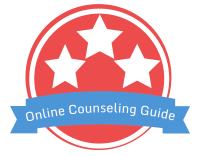What is Addiction and Substance Abuse Counseling?
Addiction and Substance Abuse counseling is an area of counseling focused on treating people who have alcohol or drug addictions or those who are abusing alcohol and drugs. It studies the underlying causes of addiction and chemical dependency, its effects on the individual at any stage of their lives, and the many different treatment options currently available. Addiction and substance abuse not only affects the person seeking treatment, but family and friends of that person as well as society as a whole. The responsibilities of Addiction and Substance Abuse Counselors are big and can have far-reaching effects if treatment is not successful.
Treatment can also be a lifelong process. Whether clients need help and guidance to maintain sobriety or those who relapse at any point in their lives, long term treatment may be necessary. Addiction Counseling treatment options can include individual behavioral counseling, group counseling and medication. Proper evaluations are required to determine the most effective treatment.
How to Become an Addiction and Substance Abuse Counselor
Get Your Degree in Psychology, Addiction Studies or Human Services
Addiction and Substance Abuse Counselors need a minimum of a bachelor’s degree with a concentration in substance abuse. You may also consider a degree in Human Services, Social Work or Psychology. However, to ensure that you are well prepared for a career as an Addiction Counselor, it would be wise to seriously consider a program specializing in or earning an Addiction and Substance Abuse Counseling degree.
Fulfill all required residencies or supervised experiences
These counseling residencies may be required and guided by your undergraduate addiction counseling degree as well as the level of credentialing you are seeking.
Determine which credential you are seeking
According to the Association of Addiction Counselors, there are 3 certifications for Addiction Counselors:
- NCAC 1 – National Certified Addictions Counselor, Level 1
- NCAC 2 – National Certified Addictions Counselor, Level 2
- MAC – Master Addiction Counselor
Each credential has their own eligibility requirements such as education, supervised experience, training and passing score on an exam(s) required at each level.
Take and pass the required Addiction Counselor exam(s)
Depending on which level of Addiction Counselor certification you are seeking, you must take one of the following exams:
- National Certified Addiction Counselor Exam, Level 1 (NCAC Level One)
- National Certified Addiction Counselor Exam, Level 2 (NCAC Level Two)
- Alcohol and Drug Counselor Exam (ADC)
- Examination for Master Addictions Counselors (eMAC)
- Advanced Alcohol and Drug Exam (AADC)
Apply to become a Certified Addiction Counselor
You will need to check with your state for information on obtaining any local certification if needed. The online college you’re attending should also have someone available to direct you to the correct state departments.
Pay the Fees to the NCAC
You will need to pay a one-time credentialing fee and continue to pay a fee every two years in order to remain current on your Addiction certification.
Where do Addiction and Substance Abuse Counselors Work?

Addiction and Substance Abuse Counselors can work in hospitals, non-profit organizations, prison system and inpatient/outpatient facilities. Some Counselors may choose to open up their own private practice. Substance Abuse Counselors who want to open up their own private practice will need to have a minimum of a Master’s Degree in Counseling. Counselors can also choose to split their time between work settings. Some counselors work in their private practice for half of their time, while the other half is spent at another facility.
Who do Addiction and Substance Abuse counselors help?
Substance Abuse Counselors may see people who have sought help and treatment for themselves. They may also see people who are admitted for treatment. Those who sought out treatment realize they have a problem that needs to be addressed. Whether they come to this decision on their own or with the help of family and friends, the decision to seek help is a very personal one. They may have seen the destruction their addiction or dependency is causing them or those around them and decide that enough is enough.
Some people may be getting treatment even though they think they don’t need it. These people may be underage or those who have a court order to undergo treatment. People who have been ordered by the court may be resistant to treatment since it wasn’t their choice. They may also feel they do not have a problem.
The type of treatment your clients need will vary and may include a holistic approach. A holistic approach combines a variety of methods and is rooted in the belief that all areas of a person’s life needs to be addressed such as the physical, emotional, mental and spiritual areas.
What is the employment outlook for Addiction Counselors?
According the Bureau Labor of Statistic (BLS), Substance Abuse and Addiction Counseling is expected to grow by 23% through 2026*. It’s uncertain whether or not the BLS has taken into account the rise in the use of opioids. That said, the profession is expected to see much higher growth than is stated.
Substance Abuse Counselor Salary Expectations
The BLS reports that Substance Abuse and Addiction Counselors can make anywhere between $27,000 and $70,000 per year. Salaries, however, may be lower or higher than these numbers based on experience, education, work setting and location.
School Search
To help get you started on your search, here are some schools that offer undergraduate substance abuse degree programs
| Southern New Hampshire University | BA in Human Services – Substance Abuse | Online or In-Person | New Hampshire | Request Info |
| Grand Canyon University | BS in Addiction Counseling | Online or In-Person | Arizona | Request Info |
| University of Cincinnati | BS in Substance Abuse Counseling | Online or In-Person | Ohio | Request Info |
*Bureau of Labor Statistics, U.S. Department of Labor, Occupational Outlook Handbook, Substance Abuse, Behavioral Disorder, and Mental Health Counselors,
on the Internet at https://www.bls.gov/ooh/community-and-social-service/substance-abuse-behavioral-disorder-and-mental-health-counselors.htm
